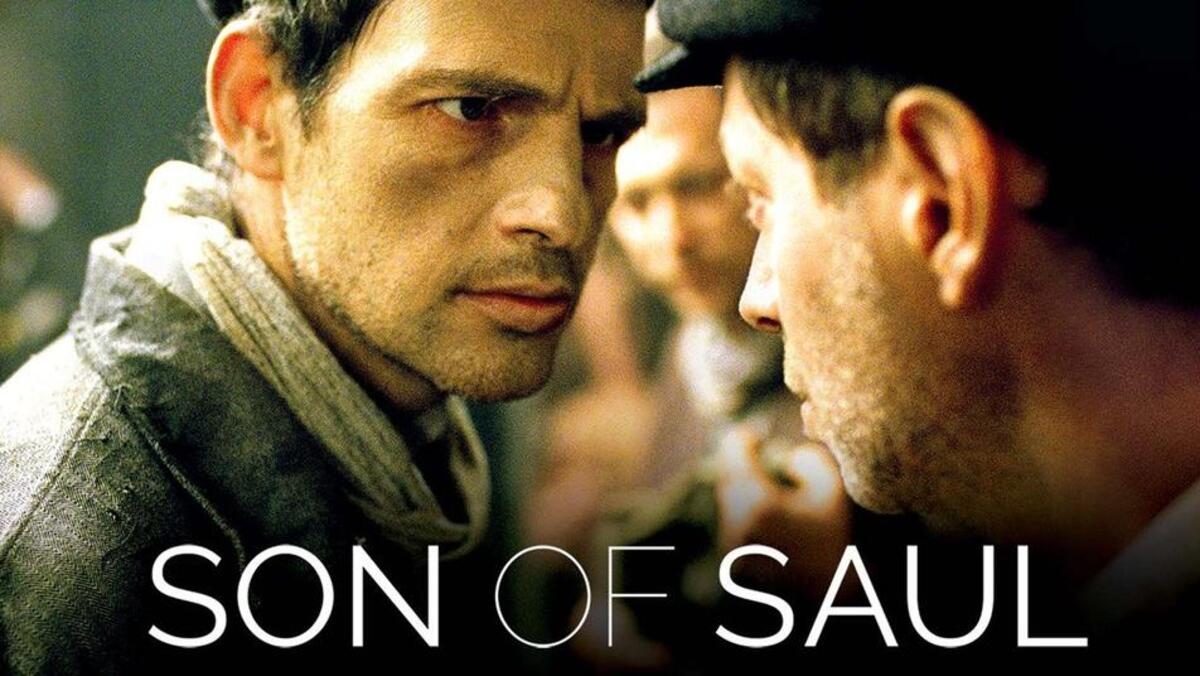
Welcome to the gripping world of “Son of Saul,” a heart-wrenching masterpiece that delves deep into the horrors of the Holocaust. This award-winning film, directed by László Nemes, takes us on a haunting journey through the eyes of Saul Ausländer, a Hungarian-Jewish prisoner forced to work in a Nazi death camp during World War II. “Son of Saul” stands out for its raw intensity, further enhanced by its unconventional cinematography and the powerhouse performance by Géza Röhrig in the lead role. In this article, we will uncover 30 fascinating facts about this extraordinary film. So, put on your seatbelt and prepare to be moved by the emotional rollercoaster that is “Son of Saul.
Key Takeaways:
- Son of Saul” is a gripping movie set in Auschwitz during World War II, showcasing the struggles of a Jewish prisoner. Its unique perspective and intense storytelling earned it critical acclaim and an Academy Award.
- The film challenges viewers to confront the atrocities of the Holocaust and serves as a powerful reminder of the importance of preserving and learning from history. “Son of Saul” continues to inspire and provoke meaningful conversations.
Son of Saul won the Academy Award for Best Foreign Language Film in 2016.
This critically acclaimed Hungarian film took the world by storm, touching hearts and winning over the audience with its gripping storytelling.
The movie is set in Auschwitz during World War II.
Son of Saul takes place in one of the most infamous concentration camps, providing a haunting portrayal of the horrors faced by the prisoners.
The film follows the story of Saul Ausländer, a Hungarian Jewish prisoner in Auschwitz.
Saul, played brilliantly by Géza Röhrig, is a member of the Sonderkommando, a group of prisoners forced to assist with the extermination process.
It was directed by László Nemes, making it his feature film debut.
Nemes’ exceptional directorial skills shine through in the film, capturing the raw emotions and intense atmosphere of Auschwitz.
Son of Saul uses a unique filmmaking technique called “the subjective camera.”
The entire movie is shot from Saul’s perspective, keeping the audience immersed in his harrowing journey.
The film has received widespread critical acclaim, with a certified fresh rating of 96% on Rotten Tomatoes.
Movie critics praised the powerful performances, impressive cinematography, and its unflinching portrayal of a tragic chapter in history.
Son of Saul was inspired by an actual account from the Auschwitz Sonderkommando.
The screenplay draws from the memoirs of Filip Müller, a survivor who was part of the Sonderkommando and documented his experiences.
The movie is known for its intense and immersive sound design.
The sound plays a crucial role in bringing the chaotic environment of Auschwitz to life, keeping the viewers on the edge of their seats.
Son of Saul received the prestigious Grand Prix award at the 2015 Cannes Film Festival.
This recognition further solidified the film’s impact and established it as a modern masterpiece.
The powerful storyline and exceptional acting made Son of Saul an audience favorite at film festivals around the world.
Viewers were captivated by the emotional depth and thought-provoking themes explored in the movie.
The film delves into the ethical dilemmas faced by prisoners in Auschwitz.
Son of Saul raises compelling questions about survival, morality, and the human spirit in the face of unimaginable cruelty.
Géza Röhrig’s performance as Saul Ausländer is hailed as one of the most remarkable performances in recent cinema.
Röhrig brings a mesmerizing intensity and vulnerability to the character, earning accolades from critics and audiences alike.
Son of Saul was the official Hungarian entry for the Best Foreign Language Film category at the 88th Academy Awards.
The film’s selection represented Hungary’s commitment to showcasing their diverse and exceptional filmmaking talent.
The claustrophobic cinematography adds to the overall sense of despair and hopelessness within the camp.
The tight shots and handheld camera work create an immersive experience, intensifying the emotional impact on the audience.
Son of Saul challenges viewers to confront the atrocities of the Holocaust.
Through its unflinching portrayal, the film serves as a reminder of the importance of remembrance and learning from history.
The movie’s script underwent careful research and was based on extensive historical documentation.
The attention to detail ensures an authentic representation of the events and the experiences of the prisoners.
Son of Saul seamlessly blends elements of drama, historical fiction, and war film genres.
This unique combination makes it a compelling and thought-provoking cinematic experience.
László Nemes’ meticulous direction captures the daily routines and operations within the concentration camp.
The director’s stark and unfiltered approach leaves a lasting impact on the audience, evoking a range of emotions.
The movie’s title, Son of Saul, is a reflection of Saul Ausländer’s desperate search for personal redemption.
Saul’s journey throughout the film becomes a deeply personal quest to give a proper burial to a young boy he believes to be his son.
Son of Saul premiered at the 2015 Cannes Film Festival, receiving a 10-minute standing ovation.
The film’s powerful storytelling and artistic vision left the audience profoundly moved.
The movie’s haunting score complements the harrowing visuals and enhances the overall cinematic experience.
The music adds emotional depth, intensifying the impact of the film’s powerful moments.
Son of Saul brings attention to the untold stories of the Sonderkommando and their role in the Holocaust.
The film sheds light on a lesser-known aspect of the genocide, highlighting the bravery and resilience of the prisoners.
Son of Saul is widely regarded as one of the most authentic and important Holocaust films of our generation.
The movie’s commitment to historical accuracy and its ability to convey the human experience in such a haunting way set it apart.
The film’s cinematography by Mátyás Erdély is visually stunning, creating a stark contrast to the bleakness of Auschwitz.
Erdély’s artistic choices capture the beauty and pain of the tragic setting, making it visually captivating.
Son of Saul earned numerous awards and nominations from various film organizations around the world.
The recognition is a testament to the film’s impact on audiences and its significance in the realm of filmmaking.
Actor Levente Molnár delivers a standout performance as Abraham Warszawski, a fellow prisoner in Auschwitz.
Molnár’s portrayal brings depth and complexity to the character, creating a compelling dynamic between him and Saul.
Son of Saul immerses the audience in the daily struggles and dehumanization faced by the prisoners in Auschwitz.
The film’s unflinching approach allows viewers to confront the harsh realities of the Holocaust.
This emotionally gripping film leaves a lasting impact on its audience, provoking reflection and discussion.
Son of Saul compels viewers to contemplate the strength of the human spirit amidst unimaginable horrors.
The film’s success sparked conversations about the importance of preserving and sharing Holocaust stories.
Son of Saul serves as a poignant reminder of the duty to remember and learn from one of humanity’s darkest chapters.
Son of Saul remains a powerful testament to the enduring power of cinema to shed light on history and inspire change.
The movie continues to resonate with audiences, reminding us of the capacity for humanity to find hope even in the most dire circumstances.
Conclusion
Son of Saul is a powerful and thought-provoking film that takes an unflinching look at the horrors of the Holocaust. Through its unique perspective and immersive storytelling, the movie delves into the emotional and psychological struggles of its protagonist, Saul Ausländer, as he navigates his role as a Sonderkommando in Auschwitz. The film’s gripping and intense narrative, coupled with exceptional performances and expert filmmaking, captures the audience’s attention from start to finish.
Son of Saul is a testament to the power of cinema to explore profound subjects and shed light on the depths of human suffering. It is a film that will leave a lasting impact on all those who watch it, forcing them to reflect on the horrors of the past and the importance of remembrance.
If you are a fan of powerful and thought-provoking movies that tackle historical events with utmost sensitivity and authenticity, Son of Saul is a must-watch film that will leave you deeply moved and contemplative.
FAQs
1. What is the storyline of Son of Saul?
Answer: Son of Saul follows the story of Saul Ausländer, a Sonderkommando in Auschwitz, who discovers the body of a young boy he believes to be his son. He embarks on a harrowing journey to give the boy a proper burial amidst the chaos and brutality of the Holocaust.
2. Is Son of Saul based on true events?
Answer: While the specific events depicted in the film are fictional, Son of Saul is based on real-life accounts and experiences of Sonderkommandos in Nazi concentration camps during World War II.
3. What makes Son of Saul stand out from other Holocaust films?
Answer: Son of Saul stands out for its unique perspective, as it focuses on the personal journey and inner turmoil of its protagonist rather than attempting to depict the broader historical narrative. This approach adds a layer of depth and intimacy to the film, making it a truly compelling and emotionally charged viewing experience.
4. Is Son of Saul a difficult film to watch?
Answer: Son of Saul is an emotionally intense film that does not shy away from depicting the horrors of the Holocaust. It deals with sensitive subject matter and contains scenes of violence and suffering. However, its portrayal of these events is handled with artistic integrity and without gratuitousness, making it a challenging but profoundly impactful viewing experience.
5. Has Son of Saul received any awards or critical acclaim?
Answer: Yes, Son of Saul has received widespread critical acclaim and numerous awards. It won the Grand Prix at the 2015 Cannes Film Festival and the Best Foreign Language Film at the 88th Academy Awards. Its powerful storytelling and masterful filmmaking have made it a standout in the genre of Holocaust films.
Son of Saul's gripping portrayal of the Holocaust's horrors will leave you eager to explore more captivating historical dramas, like The Passion of Joan of Arc. Delving into the atrocities of World War II, this film sheds light on one of humanity's darkest chapters, inspiring further investigation into the facts surrounding this devastating period.
Was this page helpful?
Our commitment to delivering trustworthy and engaging content is at the heart of what we do. Each fact on our site is contributed by real users like you, bringing a wealth of diverse insights and information. To ensure the highest standards of accuracy and reliability, our dedicated editors meticulously review each submission. This process guarantees that the facts we share are not only fascinating but also credible. Trust in our commitment to quality and authenticity as you explore and learn with us.


